By Jake Turner, intern, Latin America and Caribbean Program
As an intern in the Latin America and Caribbean Program, I had the opportunity to be part of Colombia’s domestic election observation to witness Colombians voting abroad on Oct. 2 in a plebiscite to approve the peace accord between the government and the Marxist rebel group FARC. Our assignment was to observe the vote at the consulate in Atlanta. Learn more »
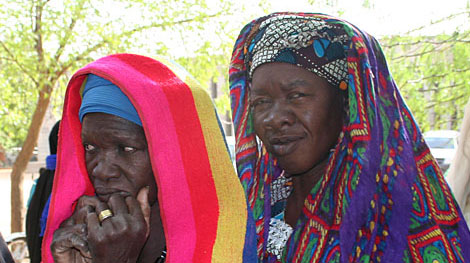 Tessougue Yietere lives in a village called Logo in Mali's Mopti region, where the Sahara desert gives way to the Central African rainforest. For many years Yietere had suffered from trachoma, a tropical eye infection that can lead to blindness.
Learn more »
Tessougue Yietere lives in a village called Logo in Mali's Mopti region, where the Sahara desert gives way to the Central African rainforest. For many years Yietere had suffered from trachoma, a tropical eye infection that can lead to blindness.
Learn more »
One afternoon last summer, a 14-year-old boy from China turned up at The Carter Center bearing a check for $451. Leo Hu and his schoolmates in Xi-an raised the money by charging admission to a play they wrote about Syrian refugees, and he flew all the way to across the Pacific to deliver it in person. Learn more »
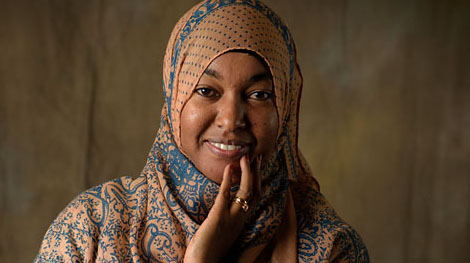 In 2016, The Carter Center convened dozens of human rights defenders from around the world to explore how to avoid violence while advocating for change. We asked several defenders to explain what human rights means to them.
Learn more »
In 2016, The Carter Center convened dozens of human rights defenders from around the world to explore how to avoid violence while advocating for change. We asked several defenders to explain what human rights means to them.
Learn more »
Thirteen-year-old Jude Musa looked serious, even stoic, as a volunteer from his village gauged his height with a measuring stick. Community drug distributor Yusuf Maikeffi determined the proper dose of praziquantel and handed the tablets to the boy, who popped them into his mouth and chased them with fresh water from a plastic pouch. Learn more »
By Ambassador (ret.) Mary Ann Peters, chief executive officer
As I write this, The Carter Center is closing in on the distribution of its 500 millionth dose of drugs to combat neglected tropical diseases. That’s half a billion doses of medication given to tens of millions of people suffering or at risk for river blindness, trachoma, lymphatic filariasis, and schistosomiasis. Big institutional milestones are the result of small individual efforts. Learn more »
By Hunter Keys, consultant, Hispaniola Initiative
Parasites keep strange schedules. Those that cause lymphatic filariasis, for example, are mostly active at night. To detect parasites in the blood, health workers will take a nocturnal sample, sometimes as late as 2 a.m. Learn more »
By Dr. Frank Richards, director, River Blindness Elimination Program
My career has come full circle. I was working in Guatemala for the U.S. Centers for Disease Control and Prevention in 1988 on the parasitic worm disease called river blindness. Then, Guatemala was Latin America’s most endemic country for the disease, which is spread by bites of black flies breeding in streams. Now, the World Health Organization has verified that Guatemala has eliminated the disease. This is a monumental achievement, reflecting 28 years of effort. Learn more »
In case you missed “Observing U.S. Elections” on Oct. 13, 2016, an archived webcast of this event can be viewed below. Learn more »
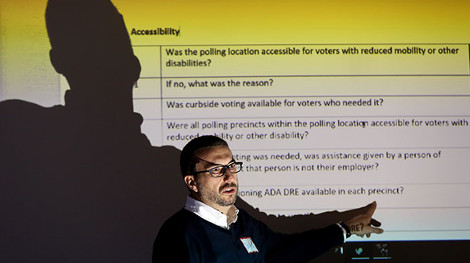 Members of the League of Women Voters of Ohio learn about election observation from Carter Center staff.
Learn more »
Members of the League of Women Voters of Ohio learn about election observation from Carter Center staff.
Learn more »
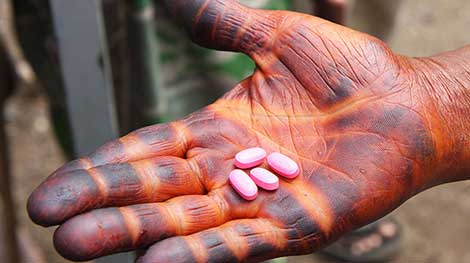 The Carter Center in 2016 surpassed 500 million doses of medication distributed to fight neglected tropical diseases.
Learn more »
The Carter Center in 2016 surpassed 500 million doses of medication distributed to fight neglected tropical diseases.
Learn more »
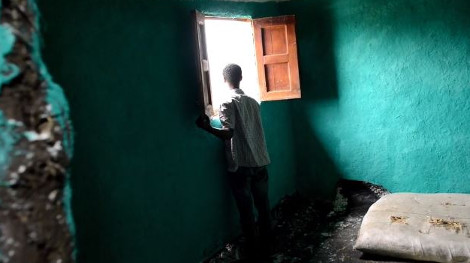
In advance of the U.S. presidential election of 2016, which will take place on Nov. 8, Davis-Roberts and Carroll answered questions on election observation in the United States. Learn more »
On Sept. 15, members of the Center’s Americas Program traveled to Bogotá, Colombia, for the launch of Trayectoria Institucional de los DDH en Colombia: Retos para Tiempos de Paz, a new publication produced by The Carter Center. Learn more »
In case you missed “A Conversation with the Carters” on Sept. 13, 2016, an archived webcast of this event can be viewed below. Learn more »
For more than 50 years, Colombia has been plagued by civil war. The fighting forced more than 5 million people from their homes and claimed the lives of more than 200,000, according to most reports. But finally, after four years of negotiations, peace is at hand. The Carter Center has been working behind the scenes in Colombia to help prepare for life after war. Learn more »
 As the Democratic Republic of Congo edges toward its next national election — slated for November, though the timing is in question — one thing is clear: The nation’s young people will play an important role.
Learn more »
As the Democratic Republic of Congo edges toward its next national election — slated for November, though the timing is in question — one thing is clear: The nation’s young people will play an important role.
Learn more »
Every year, thousands of people leave their home countries and travel to Syria or Iraq to join Daesh, also known as ISIS. Why? What compels these people — most of them young, most of them men — to leave their families and the relative comforts of their homes to fight and die in places where they have no ties? How can we stop others from following in their footsteps? Learn more »
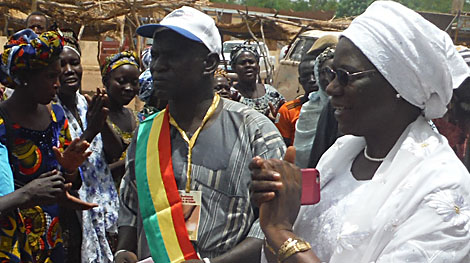 Dr. Marie Madeleine Togo is the minister of health for the Republic of Mali, responsible for protecting her almost 17 million fellow citizens from all kinds of diseases and dangers. That covers a lot of people and myriad maladies, but her work to eliminate Guinea worm disease goes beyond a professional interest in public health.
Learn more »
Dr. Marie Madeleine Togo is the minister of health for the Republic of Mali, responsible for protecting her almost 17 million fellow citizens from all kinds of diseases and dangers. That covers a lot of people and myriad maladies, but her work to eliminate Guinea worm disease goes beyond a professional interest in public health.
Learn more »
This month, the United Nations turned over the responsibility for Liberia’s security to the Liberian government. It’s the first time in 13 years that the government has been solely in charge of keeping the peace. Learn more »
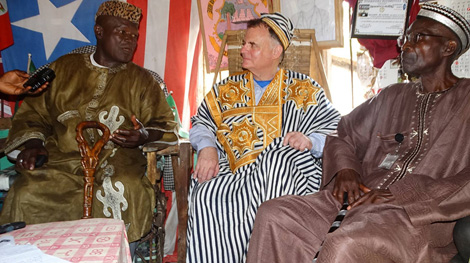 Jordan Ryan, vice president for peace programs, may be relatively new to The Carter Center, but his connection to President and Mrs. Carter dates back to the ’70s.
Learn more »
Jordan Ryan, vice president for peace programs, may be relatively new to The Carter Center, but his connection to President and Mrs. Carter dates back to the ’70s.
Learn more »
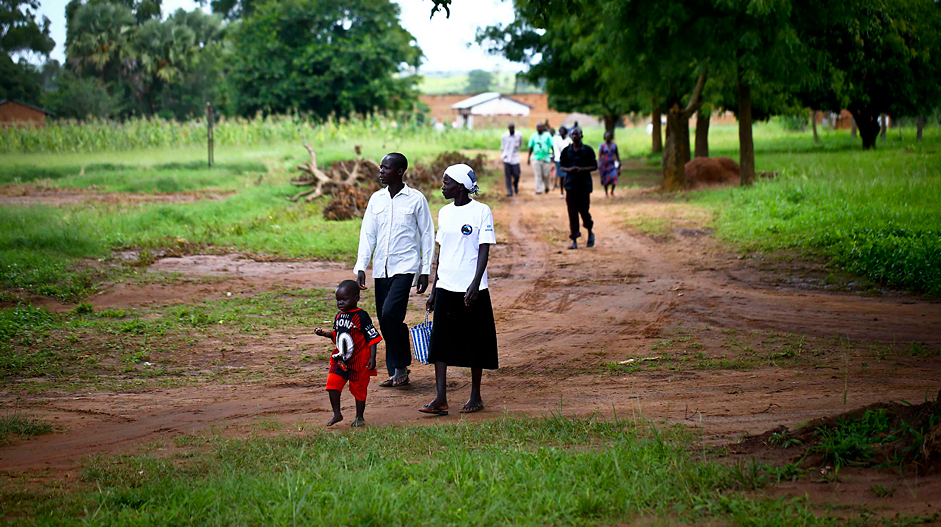 When it comes to eliminating disease, sometimes it’s not only what you know, it’s also who you know. River blindness is so pervasive in Africa that many global experts have believed it could only be controlled, not eliminated. But Uganda intends to rid itself of the parasite that causes the disease, and it’s using one of its greatest resources to do it: women.
Learn more »
When it comes to eliminating disease, sometimes it’s not only what you know, it’s also who you know. River blindness is so pervasive in Africa that many global experts have believed it could only be controlled, not eliminated. But Uganda intends to rid itself of the parasite that causes the disease, and it’s using one of its greatest resources to do it: women.
Learn more »
Welcome to the Carter Center’s new website which embraces new tools, new technology, and new servers. The result? A new and improved website with an updated look. Learn more »
Welcome to the Carter Center’s new website which embraces new tools, new technology, and new servers. The result? A new and improved website with an updated look. Learn more »
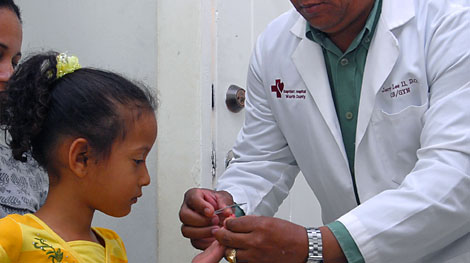 Parasites and bacteria have no respect for international borders. Many international frontiers are marked by rivers and lakes; but the water fleas that host Guinea worm larvae, the mosquitoes that transmit lymphatic filariasis and malaria, and the flies that spread river blindness and trachoma don't care which side they're on.
Learn more »
Parasites and bacteria have no respect for international borders. Many international frontiers are marked by rivers and lakes; but the water fleas that host Guinea worm larvae, the mosquitoes that transmit lymphatic filariasis and malaria, and the flies that spread river blindness and trachoma don't care which side they're on.
Learn more »
By Ambassador (ret.) Mary Ann Peters, chief executive officer, The Carter Center
The Carter Center operates under the firm conviction that people are capable of solving their own challenges, and our role is to provide them the tools and training to do it. Learn more »
 ELMO (short for Election Monitoring) is a Carter Center created electronic data collection and analysis system. Since its introduction in 2011, ELMO has gradually rendered paper checklists obsolete. Equipped with ELMO, observers can submit their checklist data — with more detail than ever before — to headquarters in real time using touchscreen tablets or smartphones. Computers continuously aggregate the data for staff to analyze.
Learn more »
ELMO (short for Election Monitoring) is a Carter Center created electronic data collection and analysis system. Since its introduction in 2011, ELMO has gradually rendered paper checklists obsolete. Equipped with ELMO, observers can submit their checklist data — with more detail than ever before — to headquarters in real time using touchscreen tablets or smartphones. Computers continuously aggregate the data for staff to analyze.
Learn more »
One simple way we can help people dealing with mental illness is by choosing our words with care. How we speak and write about mental illness can help either reinforce or break down stereotypes. The Carter Center has long worked to reduce stigma by providing fellowships to journalists covering mental health. Learn more »
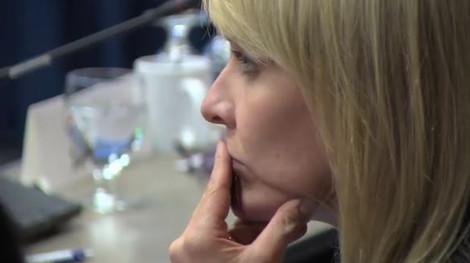
Without information, it is almost impossible to ensure your rights are protected, improve your economic situation, or make your voice heard. In case you missed “The Power of Information” at The Carter Center on March 15, 2016, an archived webcast of this Conversations at The Carter Center event can be viewed here. Learn more »
By Ambassador (ret.) Mary Ann Peters, chief executive officer
During my 18 months at The Carter Center, I’ve been struck repeatedly not only by the frequency of our successes, but also by the chance to appreciate them on two vastly different scales. Learn more »
Posted by the U.S. State Department to Moscow during the Mikhail Gorbachev era, Mary Ann Peters had an up-close view of the Soviet system. "The isolation and repression of the people were palpable," said Peters, a former U.S. ambassador and now chief executive officer of The Carter Center. "We in the embassy knew that talking to people on the streets would get them in real trouble, so we refrained for their sakes." Learn more »
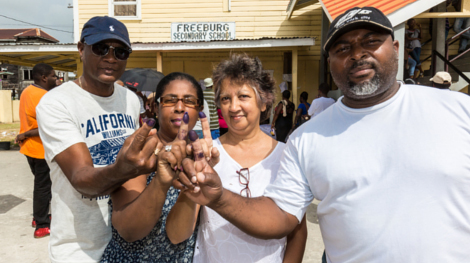 It's election day in Georgetown, Guyana, and taxi driver Kirk Embrack can't stop smiling. "I'm always an optimist," he says. "I would like to see Guyana be back to the days of old, when it was the breadbasket of the Caribbean."
Learn more »
It's election day in Georgetown, Guyana, and taxi driver Kirk Embrack can't stop smiling. "I'm always an optimist," he says. "I would like to see Guyana be back to the days of old, when it was the breadbasket of the Caribbean."
Learn more »
By Nandi Vanka, program assistant, Democracy Program
Impartial election observers help build confidence in the integrity of the voting process, and their assessments and recommendations help protect voters’ rights. Learn more »
By Chris Hale, associate director, Global Access to Information Program
“Information is power” is a refrain most of us have heard before. The work of The Carter Center’s Global Access to Information Program rests not only on a firm belief that information is power, but that the right to access information is the basic currency for democratic participation and an active and full exercise of citizenship. Learn more »
The world’s two great superpowers could achieve more progress if there were less suspicion and more cooperation between them, participants in a series of bilateral Carter Center forums say. Learn more »
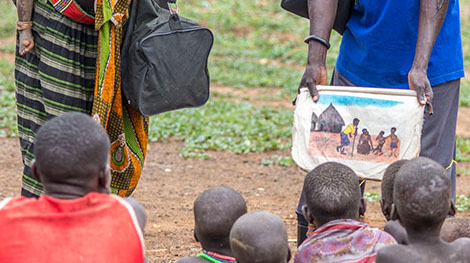 By spearheading eradication and elimination programs, The Carter Center works to wipe out preventable diseases in ways that help people acquire the tools, knowledge, and resources they need to transform their own lives.
Learn about five Carter Center health programs working to make preventable diseases a distant memory.
Learn more »
By spearheading eradication and elimination programs, The Carter Center works to wipe out preventable diseases in ways that help people acquire the tools, knowledge, and resources they need to transform their own lives.
Learn about five Carter Center health programs working to make preventable diseases a distant memory.
Learn more »
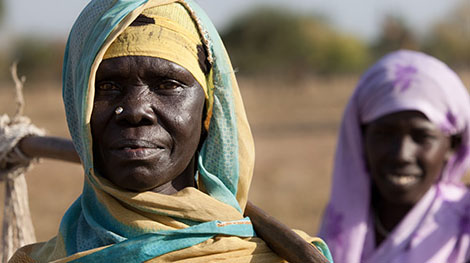 Using data-driven measurements and monitoring — and working closely with federal ministries of health and affected communities — the Carter Center-led Guinea worm eradication campaign has driven the global incidence of Guinea worm disease down to only 22 cases reported in 4 endemic countries in 2015, a reduction of more than 99.99 percent since 1986.
Learn more »
Using data-driven measurements and monitoring — and working closely with federal ministries of health and affected communities — the Carter Center-led Guinea worm eradication campaign has driven the global incidence of Guinea worm disease down to only 22 cases reported in 4 endemic countries in 2015, a reduction of more than 99.99 percent since 1986.
Learn more »
Former U.S. President Jimmy Carter received back-to-back honors this week in appreciation of his efforts to promote peace and human rights. Learn more »
In case you missed “Stories from 100 Elections” at The Carter Center on Dec. 2, 2015, an archived webcast of this Conversations at The Carter Center event can be viewed below. Learn more »
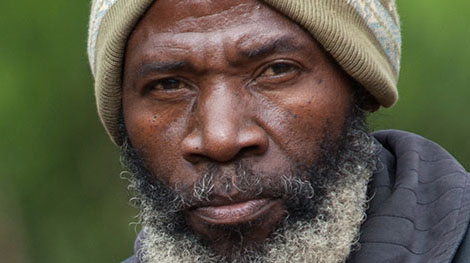 For five years, Christophe Kabwita has been trying to reclaim what is rightfully his while also trying to keep his family sheltered, fed, and healthy.
Learn more »
For five years, Christophe Kabwita has been trying to reclaim what is rightfully his while also trying to keep his family sheltered, fed, and healthy.
Learn more »
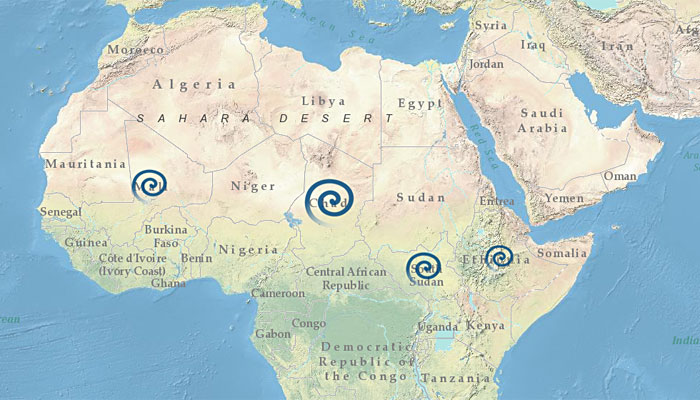 See where cases of Guinea worm were reported in 2016 and what the Center is doing to wipe them out.
Learn more »
See where cases of Guinea worm were reported in 2016 and what the Center is doing to wipe them out.
Learn more »
Please sign up below for important news about the work of The Carter Center and special event invitations.